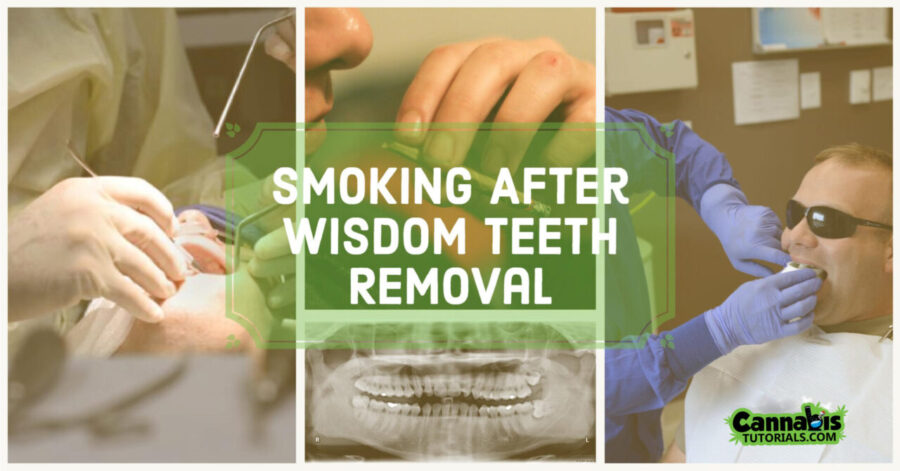Smoking After Wisdom Teeth Removal: Safe Guidelines

Smoking after wisdom teeth removal is a highly debated topic, with many oral surgeons and dentists advising against it due to the potential complications it can cause. Wisdom teeth removal is a common surgical procedure that involves the extraction of one or more wisdom teeth, also known as third molars. The recovery process typically takes a few days to a week, during which time it’s essential to follow the dentist’s or oral surgeon’s instructions to ensure proper healing and minimize the risk of complications.
Smoking can significantly impact the healing process after wisdom teeth removal. The primary concern is that smoking can reduce blood flow to the gums, which can impair the healing process and increase the risk of complications, such as dry socket, infection, and delayed wound closure. Dry socket, also known as alveolar osteitis, is a painful condition that occurs when the blood clot that forms over the socket is dislodged or fails to develop, exposing the bone and nerve endings.
The Risks of Smoking After Wisdom Teeth Removal
Smoking after wisdom teeth removal can lead to several complications, including:
- Dry Socket: Smoking can reduce blood flow to the gums, which can increase the risk of dry socket. Dry socket is a painful condition that can prolong the recovery process and require additional treatment.
- Infection: Smoking can weaken the immune system, making it more challenging for the body to fight off infections. After wisdom teeth removal, the risk of infection is higher, and smoking can increase this risk.
- Delayed Wound Closure: Smoking can impair the healing process, leading to delayed wound closure. This can prolong the recovery process and increase the risk of complications.
- Increased Pain: Smoking can reduce the effectiveness of pain medication, making it more challenging to manage pain after wisdom teeth removal.
- Poor Healing: Smoking can impair the healing process, leading to poor wound healing and increased scarring.
Safe Guidelines for Smoking After Wisdom Teeth Removal
While it’s best to avoid smoking altogether after wisdom teeth removal, some people may find it challenging to quit. If you’re a smoker, it’s essential to follow these guidelines to minimize the risks:
- Wait at Least 24-48 Hours: Avoid smoking for at least 24-48 hours after wisdom teeth removal. This allows the blood clot to form and the wound to start healing.
- Use a Nicotine Replacement Therapy: Consider using a nicotine replacement therapy, such as gum or lozenges, to manage withdrawal symptoms and reduce the urge to smoke.
- Avoid Smoking for 3-5 Days: If you must smoke, try to avoid it for at least 3-5 days after wisdom teeth removal. This allows the wound to heal further and reduces the risk of complications.
- Take Regular Breaks: If you’re unable to quit smoking, take regular breaks to rest and avoid smoking for short periods.
- Follow Your Dentist’s Instructions: Your dentist or oral surgeon will provide specific instructions on how to care for your mouth after wisdom teeth removal. Follow these instructions carefully, and avoid smoking if advised to do so.
Practical Tips for Managing Smoking After Wisdom Teeth Removal
Managing smoking after wisdom teeth removal requires a combination of discipline, patience, and strategies to minimize cravings. Here are some practical tips to help you manage your smoking habits:
- Stay Hydrated: Drink plenty of water to stay hydrated and reduce cravings.
- Use Sugar-Free Gum: Chew sugar-free gum to reduce cravings and keep your mouth busy.
- Avoid Triggers: Avoid triggers that make you want to smoke, such as certain social situations or emotions.
- Get Support: Join a support group or talk to a friend or family member about your struggles with smoking.
- Consider Professional Help: If you’re struggling to quit smoking, consider seeking professional help from a counselor or therapist.
Step-by-Step Guide to Quitting Smoking After Wisdom Teeth Removal
- Set a quit date and make a plan to manage cravings
- Get support from friends, family, or a support group
- Use nicotine replacement therapy or prescription medications to manage withdrawal symptoms
- Avoid triggers and stay hydrated
- Follow your dentist's instructions and attend follow-up appointments
Conclusion
Smoking after wisdom teeth removal can lead to several complications, including dry socket, infection, and delayed wound closure. While it’s best to avoid smoking altogether, following the safe guidelines outlined above can help minimize the risks. Remember to discuss your smoking habits with your dentist or oral surgeon before the procedure and follow their personalized advice and guidance. With the right strategies and support, you can manage your smoking habits and ensure a smooth recovery after wisdom teeth removal.
Can I smoke immediately after wisdom teeth removal?
+No, it’s not recommended to smoke immediately after wisdom teeth removal. Wait at least 24-48 hours to allow the blood clot to form and the wound to start healing.
How long should I avoid smoking after wisdom teeth removal?
+Avoid smoking for at least 3-5 days after wisdom teeth removal to minimize the risks of complications. However, it’s best to follow your dentist’s instructions and guidance.